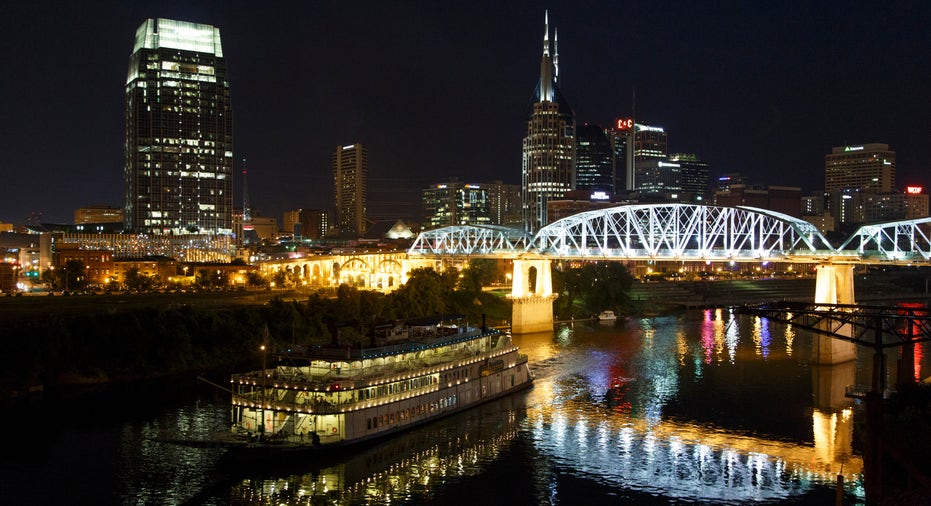How a Foreclosed Restaurant Turned Into Nashville's Music Hot Spot

When Ron Brice bought a piece of property from a government auction 25 years ago, he never imagined his small business would grow into a famed hot-spot.
Brice, who was born and raised in Detroit, moved to Nashville when he was 21 years old. In the early 1980s he was involved in commercial real estate and a family business. When he and a buddy purchased the joint that would become 3rd & Lindsley, it was after country pop singer Garth Brooks moved out of Nashville, which Brice says left the city “really flat.”
The property, a foreclosed Mexican restaurant, was off the beaten path, according to Brice—something that didn’t discourage him.
“From a restaurant standpoint the location was pretty good. I thought it would service the neighborhood really well during the day… it just made sense to do music at night,” he told FOXBusiness.com. “The thing about it, I think at the time, in Nashville looking back at the landscape, I think the market was just really right for that type of a venue.”
Though a big part of the business, Brice says the restaurant and food service is the toughest. The menu, which has been served up by the same kitchen manager since day one, includes sandwiches, burgers, steaks and fish.
“It’s not kind of like a typical restaurant situation where you have a big turnover of people come and go kind of a thing,” he said. “They're here, they're here to eat, see a show… which is a challenge, trying to provide good service and good food.”
Since opening its doors in Nashville in 1991, country music has exploded, though sales dipped in 2015, according to Billboard. Garth Brooks, whose debut album was released in 1989, is the highest paid country music artist so far in 2016, and topped the list last year as well, according to Forbes.
As with any small business, adapting to changing trends can be “make or break.”
“I think right now a live music ticket is a great entertainment experience at a lot of different levels,” Brice said. “Our level is a bit more intimate… Nowadays in the information era… it’s not all performance-based. [Fans] actually want to get to know an artist, meet an artist, find out what they’re all about. The pool is way bigger because of social media. It’s a valuable tool that we didn’t have [back] in the day.”
3rd & Lindsley finds itself surrounded by three major music venues—the Ryman Auditorium, the Grand Ole Opry House and the 20,000-seat Bridgestone Arena. The Ryman, a national historic landmark was founded in the 1800s, and the Opry House, which opened in 1974, both host the iconic “Grand Ole Opry” stage show. However, Brice doesn’t see these sites as competition.
“It’s kind of a stepping stone,” he said. “It’s maybe some smaller venues before us, then us. Then [music acts] move on to the Ryman then they’re playing Bridgestone [Arena], that kind of a thing. Our location to Music Row is very valuable to us.”
About five years after opening, Brice and local, independent radio station Lightning 100 partnered to create “Nashville Sunday Night,” a weekly concert series broadcast live from 3rd & Lindsley, which benefits up-and-coming artists, Brice and the station alike.
“It’s a no-brainer for an artist coming down the road with a new record,” Brice said. “[They think] 'hey we got a new record, we’re going to get an hour to 90 minutes of air time. We’re going to get a bunch of supported spots, spins of the record on the radio station and we’re going to get paid to play on a Sunday night in Nashville.’”
When the economy declined in 2007-2009, the music and bar and grill kept on going, not missing a beat, according to Brice.
“I’ve had growth every year since I’ve started. I’ve been a little flatter on some, but I’ve experienced growth every year. I’m seeing a lot of growth now obviously with Nashville going crazy. More growth than I had seen in some of the recession years, but it’s never really affected us in a bad way,” he said.
Though right now parking issues are his biggest concern, Brice sees a bright path ahead as the city of Nashville itself continues to develop with commercial and residential buildings.
“I think down the road in the next two to three years or so I think we’ll be like a walking kind of a thing from downtown,” he said. “I suspect my business model might change a hair over time. But I pretty much just tell all my people let’s just keep on doing what we do. We’re known for something that works. People know what to expect when they come there. Tweak some things here and there to adjust to the new Nashville and all the things that are going on.”



















